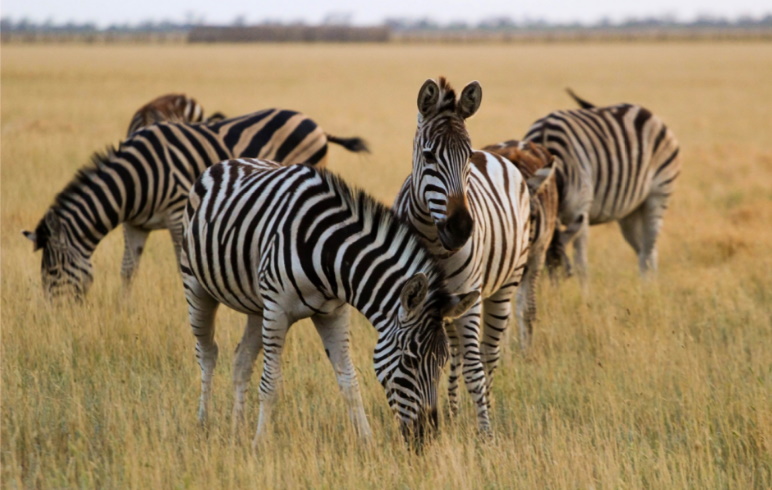Before Russia launched its full-scale war against Ukraine, the Askania-Nova Biosphere Reserve, established by German Friedrich Falz-Fein in 1898, was one of the most popular tourist destinations in Ukraine. It attracted visitors from all over the world with its stunning landscapes and unique wildlife.
The significance of the reserve in Kherson Oblast, often called “one of the seven natural wonders of Ukraine,” was also recognized by UNESCO, which included it in the World Network of Biosphere Reserves. In addition, Askania-Nova is the largest steppe reserve in Europe.
Here, across 33.3 thousand hectares, 3,000 species of rare animals – zebras, wildebeest, bison, buffalo, deer, and wild horses – live in partial freedom, mostly without cages and fences. Tourists, especially families with children, enjoyed going on eco-safaris, feeding the animals by hand, and reveling in a sprawling botanical garden.
The Russian invasion has brought devastation to Askania-Nova. Since 24 February 2022, military vehicles have driven through the reserve’s green territory, polluting the area, and animals have been deprived of essential medications and food. In addition, the occupation authorities recently dismissed the head of Askania-Nova, Viktor Shapoval. They replaced him with a Russian citizen, which raises concerns that animals could be stolen from this environmental gem in southern Ukraine.
Askania Nova’s wildlife at risk
Askania-Nova fell under Russian occupation on the first morning of Russia’s brutal invasion of Ukraine, reports TSN. Inhabitants and personnel of the ecological site met spring of 2022 without essential supplies of food, medication, and fuel for agricultural machinery, according to Shapoval.
“The biggest crisis we’ve faced is the disruption of the procurement tendering for animal fodder scheduled for the end of February 2022. We’re now left, in fact, with limited resources and have been forced to make some difficult decisions, such as implementing a strict cost-saving regime by reducing the daily rations of the animals we care for,” he explained on 12 March.
Additionally, the head of the reserve stated that although Russian military vehicles had started passing through the reserve’s territory, there were no attempts to seize Askania-Nova by the invaders.
After a few months, the situation took a more drastic turn as the occupiers intensified their search for partisans allegedly hiding in nature reserves and national parks. They set forests on fire, destroying them, and persecuted employees, according to the Center for Investigative Journalism.
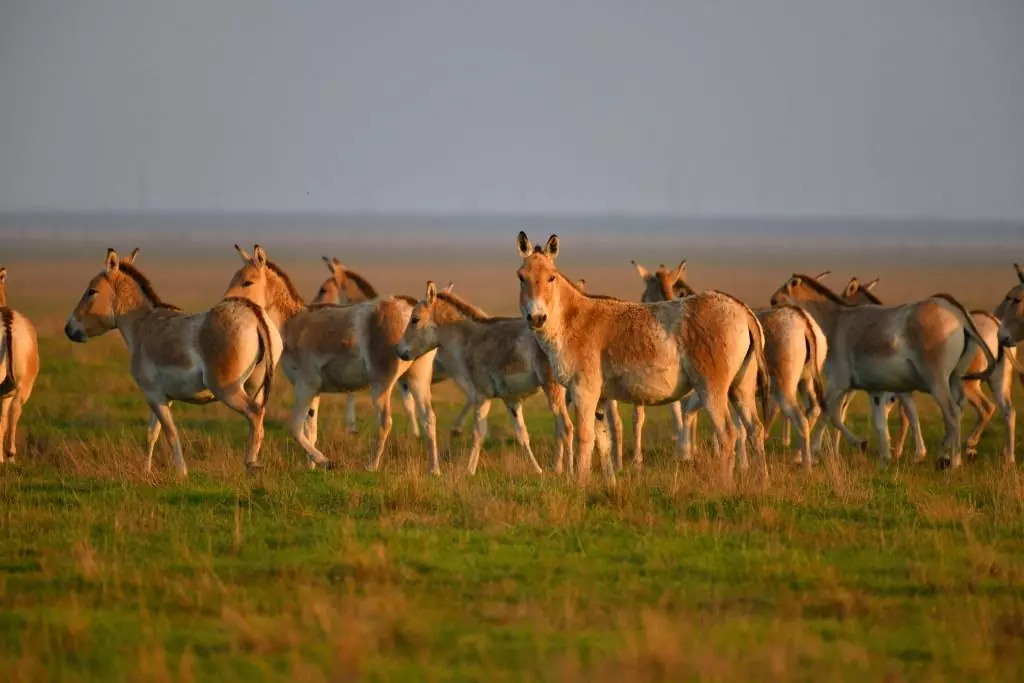
In July 2022, Ukrainian police revealed that Russia had taken another step towards seizing the biosphere reserve and undermining Ukraine’s scientific progress by capturing the research center that breeds new species of livestock – the Askania-Nova Animal Husbandry Institute. The occupation administration also appointed a new “head” of the institution and set a Russian flag on the building.
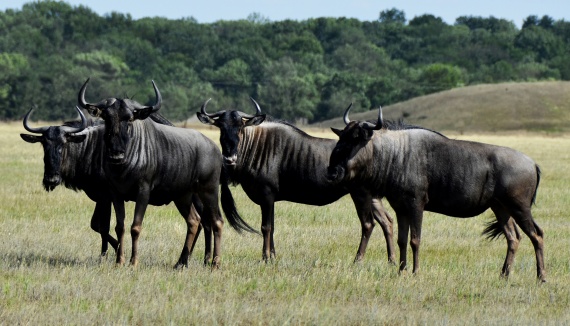
Russian authorities installed Dmitry Meshcheriakov as director of the unique ecological zone. It remains unknown whether he has the professional skills required to take care of rare animals. According to the team of biologists at Askania-Nova, the occupiers concealed Meshcheriakov’s personal details.
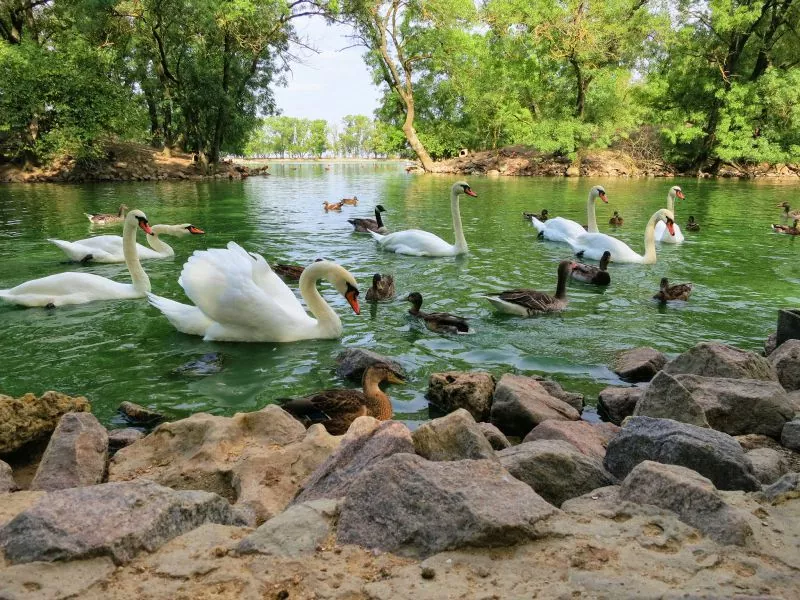
However, Ukrainian experts could find out one fact about him. Shortly after his appointment, Meshcheriakov submitted a request to the state register to add a newly created legal entity named “Askania-Nova Biosphere Reserve” to the official list of Russian companies. Ukraine considered this move a blatant attempt to finalize the transfer of the reserve into Russian hands, leaving no doubt about Meshcheriakov’s active role in the occupation of Askania-Nova.
Shapoval, the Ukrainian director of Askania-Nova, described the situation as a “disaster” and warned that the occupying authorities could start stealing animals from the reserve for commercial purposes, RFE/RL revealed. According to him, animals in the reserve listed as “critically endangered” by the International Union for Conservation of Nature – including zebras, African buffaloes, and Przewalski’s horses – can vary in price from $1,000 to $3,500. This collection of species with global significance must be protected from looting, Ukrainian experts say.
Russian troops are unlikely to be concerned about the happiness of wildlife in Kherson Oblast. Currently, the occupiers consider the nature reserve as a rear base. When the Ukrainian army drives them out, Russian soldiers will most likely loot Askania-Nova, sell rare animals, and kill others, reported Vhoru, citing Serhiy Danylov, the deputy director of the Association of Middle East Studies. However, he stresses that the extent of this damage will depend on the speed of the Ukrainian counteroffensive.
In April 2023, a pro-Kremlin Telegram channel shared photos of Russian soldiers holding roe deer supposedly killed in Askania-Nova with the caption “Yummy.” Despite the fact that Ukrainian representatives soon refuted the killing of animals in the reserve, the looming threat to Askania-Nova’s wildlife remains.
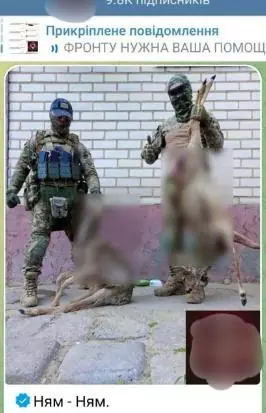
Resisting Russian occupation
During the first year of Russia’s occupation of Kherson Oblast, the Ukrainian team of experts at Askania-Nova showed an unwavering commitment to protecting nature from the consequences of the war. Despite threats, the reserve staff refused to cooperate with invaders but continued to perform their duties on a daily basis.
“Even in the early morning of 24 February, when the first explosions rocked the region and skies turned red, all the team members came to work. They fed the animals and did all the necessary work before returning home,” said a representative of Askania-Nova in an interview with RBC.
However, the reserve turned to social media to help with its shortage of food and medicine for the animals. The results were overwhelming.
“We were amazed by the reaction, the number of messages, and the financial support we received. Within a week, we were able to address the urgent need for feed grain. We purchased and stocked it,” said Shapoval.
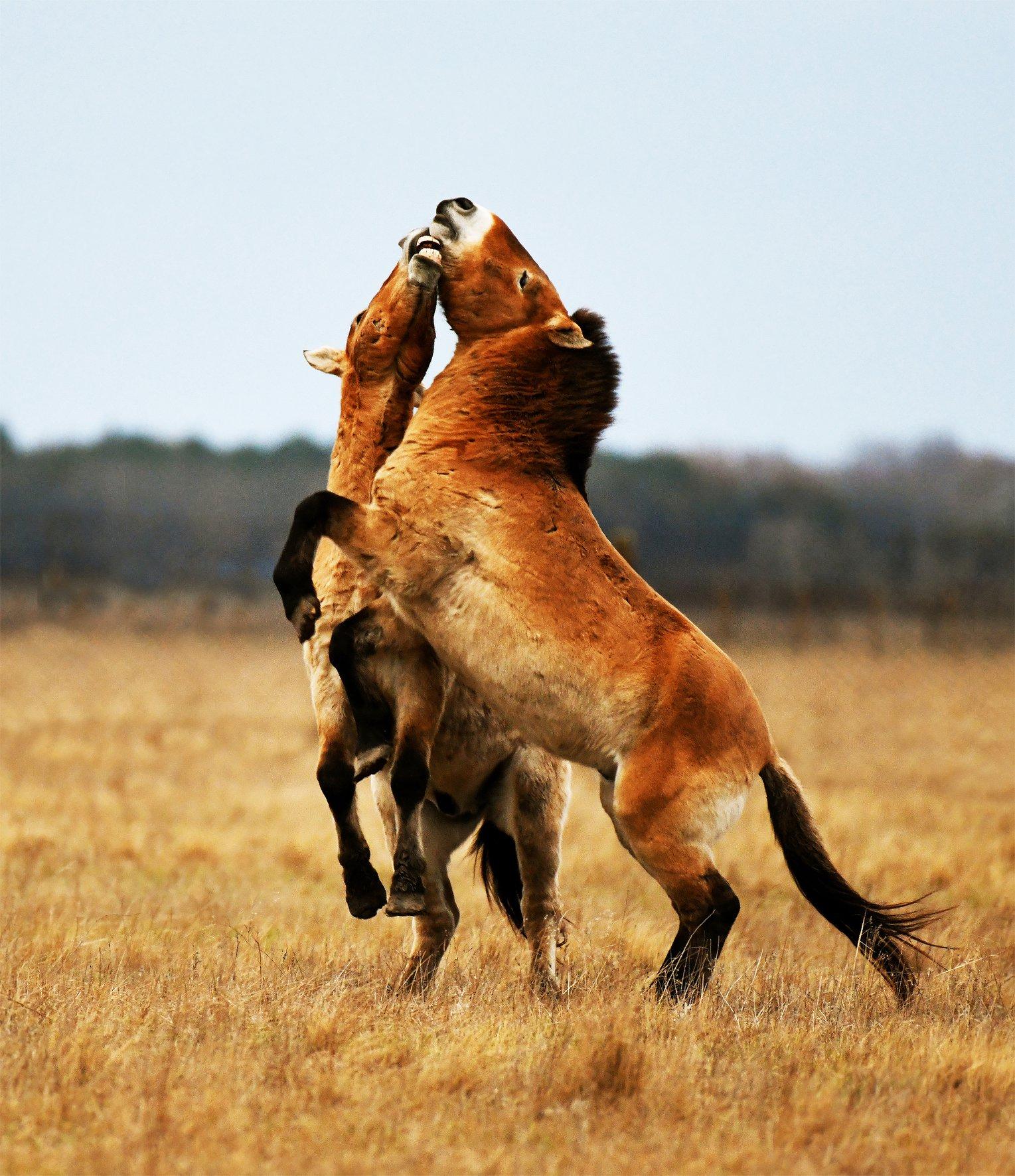
Dozens of volunteer organizations and thousands of people have made generous donations to the reserve. UAnimals, a Ukrainian animal welfare organization, was among them. In April 2022, its volunteers sent over $10,000 – enough to buy hay to feed the animals for an entire year.
In addition, the employees of Askania-Nova have been left without salaries following a complete ban on the Ukrainian currency (hryvnia) imposed by the occupying forces. Although the government of Ukraine continues transferring payments to the reserve’s workers, the employees have to exchange hryvnias for Russian rubles at the risk of being detained by invaders. Yet, dedication to the mission of caring for the reserve’s plants and animals overcomes fear.
Even after Russia’s seizure of Askania-Nova, the technical staff continues to provide service at the reserve. However, as of today, the Ukrainian administration cannot fully ensure the protection of the zone, according to a statement by Askania-Nova.
Shapoval has emphasized that only Ukraine’s long-awaited counteroffensive can return peace and freedom to Askania-Nova, according to Texty. To provide moral support to Ukrainian soldiers, the reserve named a baby yak “Bayraktar,” after the Turkish unmanned combat aerial vehicle used against Russian troops.
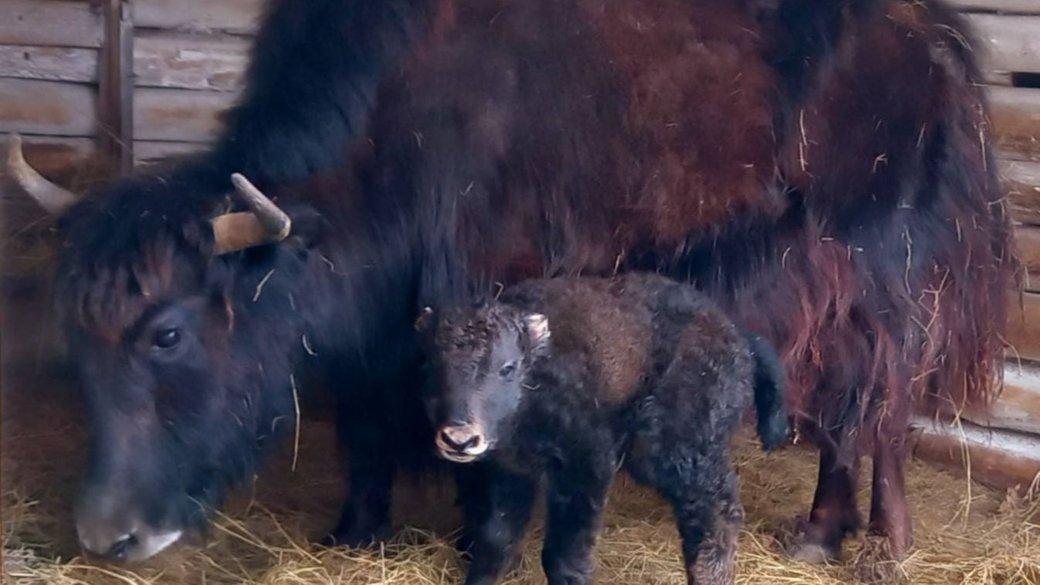
How to hold Russia responsible for crimes against Ukraine’s environment?
Ukraine has appealed to international environmental organizations to recognize Russia’s actions in occupied nature reserves in Kherson Oblast as illegal, says Ruslan Strilets, Minister of Environmental Protection and Natural Resources of Ukraine.
Official notes have been sent to the offices of the Berne, Ramsar, and Bonn conventions; the Convention on International Trade in Endangered Species of Wild Fauna and Flora; the International Union for Conservation of Nature; and the National Commission of Ukraine for UNESCO. According to the minister, Ukraine estimates the cost of ecological damage caused by the Russian invasion at over $46 billion.
On 21 April 2023, activists from six continents joined hands to form a human chain to draw attention to the crimes against nature committed by Russia during its aggression against Ukraine, which are often called an “ecocide.”
https://twitter.com/EuromaidanPress/status/1651022277981372423
The demonstrators urged the international community to sign a petition titled “Stop Ecocide in Ukraine,” which calls on EU leaders to launch an investigation into violations of environmental protection laws by Russian troops.
Related:
- Russia inflicted nearly $55 billion in environmental damage to Ukraine – Ecology Ministry
- Russia destroys Europe’s largest poultry farm, 4.4mn chickens dead
- Ukrainian identity: away from Moscow
- UN report accuses Russia of war crimes in Ukraine: Torture, sexual violence, and murder revealed
- Russia’s war accelerated crystallization of Ukrainian identity – Vitaliy Portnikov
- Donbas without water: The ecology of the east Ukrainian frontline

